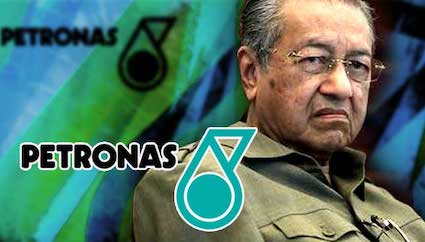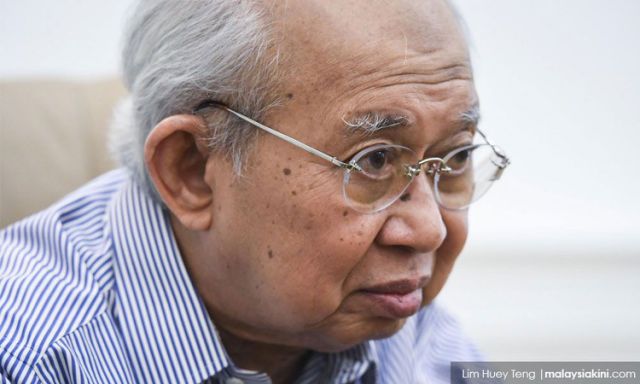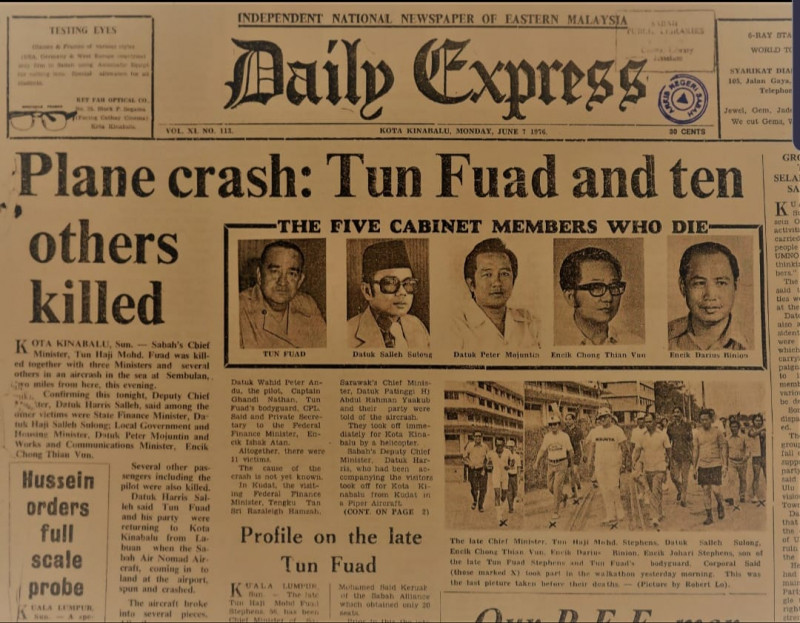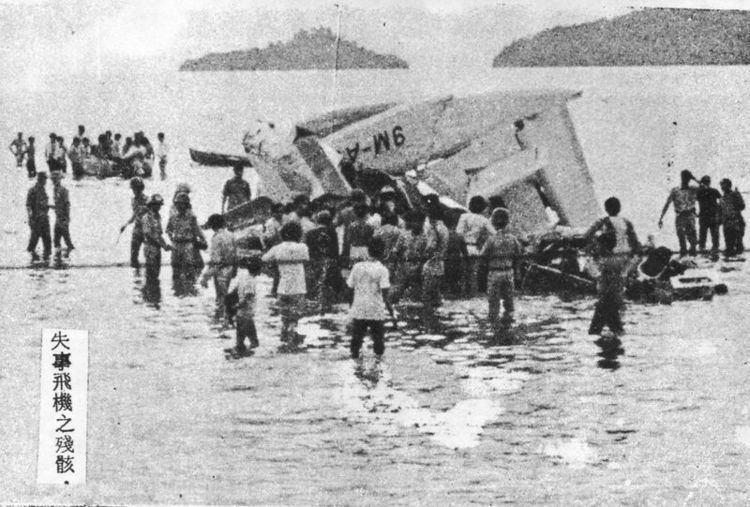A Case For Terengganu, Kelantan, Sabah, And Sarawak To Leave Malaysia
By Raja Petra Kamarudin

As Wang Ehsan, Petronas did not need to hand the money to the Terengganu State Government. Instead, the money was given to Umno Terengganu, and Idris Jusoh was put in charge of managing that money. The money was then syphoned out through so-called ‘projects’.
When Malaya, and then Malaysia, was formed, it was agreed that the federalisation of the Malay States would not infringe on certain state rights. The powers of the Federal Government would include security, defence, foreign relations, taxation, and so on. Matters involving Malay customs and traditions, the Palace, religion, natural resources, etc., would remain under the powers and authority of the States.
A country’s territorial water is 12 miles while the exclusive economic zone is 200 nautical miles (370.4 km or 230.2 miles). And that is one reason why Singapore is reclaiming the sea. The more Singapore juts out to sea, the more waters they own. And anything in the waters (plus anything below and above the reclaimed land) belongs to Singapore.
When they discovered oil in the South China Sea in the early 1970s (at that time Tun Razak Hussein was the Prime Minister), they faced a dilemma. The oil was off the coast of Terengganu and Kelantan. The oil may belong to Malaysia, but then it is off Terengganu and Kelantan and is a natural resource. So, under the Federation of Malaya/Malaysia agreement, the oil belongs to Terengganu and Kelantan.
But Tun Razak wanted to nationalise the oil. It was too much money to be given to the two poorest states in Malaysia (even Perlis was richer at that time). Tun Razak wanted the oil and gas wealth to belong to Malaysia with Terengganu and Kelantan receiving only a 5% ‘commission’.

When Malaya, and then Malaysia, was formed, it was agreed that the federalisation of the Malay States would not infringe on certain state rights. The powers of the Federal Government would include security, defence, foreign relations, taxation, and so on. Matters involving Malay customs and traditions, the Palace, religion, natural resources, etc., would remain under the powers and authority of the States.
A country’s territorial water is 12 miles while the exclusive economic zone is 200 nautical miles (370.4 km or 230.2 miles). And that is one reason why Singapore is reclaiming the sea. The more Singapore juts out to sea, the more waters they own. And anything in the waters (plus anything below and above the reclaimed land) belongs to Singapore.
When they discovered oil in the South China Sea in the early 1970s (at that time Tun Razak Hussein was the Prime Minister), they faced a dilemma. The oil was off the coast of Terengganu and Kelantan. The oil may belong to Malaysia, but then it is off Terengganu and Kelantan and is a natural resource. So, under the Federation of Malaya/Malaysia agreement, the oil belongs to Terengganu and Kelantan.
But Tun Razak wanted to nationalise the oil. It was too much money to be given to the two poorest states in Malaysia (even Perlis was richer at that time). Tun Razak wanted the oil and gas wealth to belong to Malaysia with Terengganu and Kelantan receiving only a 5% ‘commission’.

READ MORE HERE: 5% oil royalty is the agreement, not ‘wang ehsan’, says Ku Li
Tun Razak asked Tengku Razaleigh Hamzah to look into this matter, who in turn sought legal advice from Tun Salleh Abas.
To cut a long story short, Ku Li and Tun Salleh drafted the Petroleum Development Act (PDA) that was passed by Parliament in 1974. Under this PDA, oil and gas will be nationalised and the states (which by right owned 100% of the oil and gas) would be given a 5% commission. A national oil company would be formed to manage the oil and gas, which would be called Petronas.
All 13 of the states were asked to sign an Agreement with Petronas. There were some protests, but in the end all the states signed. Sabah held out till the end. Then a number of important people died in a mysterious plane crash and the government changed — and in the end, Sabah signed the Agreement as well.


Two years later, the states were made to sign a Supplementary Agreement that stipulated the 5% commission is to be called ‘Royalty’.
The states were never happy they were made to sign the Agreement with Petronas in 1974, or made to sign the Supplementary Agreement two years later. And they were even more unhappy that the Royalty is just 5% and not, say, 20% — when under the Federation Agreement it was supposed to be 100%.
This revocation of the 5% Royalty and converting it to ‘Wang Ehsan’ is grounds for Terengganu, Kelantan, Sabah, and Sarawak to question what the benefit of remaining in Malaysia is if the Federal Government does not respect the Federation Agreement and is violating the terms of the Agreement. As it is, Sabah and Sarawak are already questioning the breaches to the 18/20-Point Agreements.
This Wang Ehsan was a creation of Tun Dr Mahathir Mohamad. In November 1999, Terengganu fell to PAS. So, suddenly RM800 million to RM1 billion a year is going to fall into the hands of PAS. Mahathir wanted to deny PAS this money. So he withdrew the Oil Royalty for Terengganu and converted it to Wang Ehsan.
As Wang Ehsan, Petronas did not need to hand the money to the Terengganu State Government. Instead, the money was given to Umno Terengganu, and Idris Jusoh was put in charge of managing that money. The money was then syphoned out through so-called ‘projects’.
Terengganu was told if they want back their Oil Royalty, they will need to kick PAS out and vote Umno back in as the government. In 2004, PAS was kicked out and Umno came back to power. But the Wang Ehsan was never changed back to Oil Royalty and Umno continued to enjoy the money, which actually belonged to the State Government, and hence to the rakyat of Terengganu.
Tun Razak asked Tengku Razaleigh Hamzah to look into this matter, who in turn sought legal advice from Tun Salleh Abas.
To cut a long story short, Ku Li and Tun Salleh drafted the Petroleum Development Act (PDA) that was passed by Parliament in 1974. Under this PDA, oil and gas will be nationalised and the states (which by right owned 100% of the oil and gas) would be given a 5% commission. A national oil company would be formed to manage the oil and gas, which would be called Petronas.
All 13 of the states were asked to sign an Agreement with Petronas. There were some protests, but in the end all the states signed. Sabah held out till the end. Then a number of important people died in a mysterious plane crash and the government changed — and in the end, Sabah signed the Agreement as well.


Two years later, the states were made to sign a Supplementary Agreement that stipulated the 5% commission is to be called ‘Royalty’.
The states were never happy they were made to sign the Agreement with Petronas in 1974, or made to sign the Supplementary Agreement two years later. And they were even more unhappy that the Royalty is just 5% and not, say, 20% — when under the Federation Agreement it was supposed to be 100%.
This revocation of the 5% Royalty and converting it to ‘Wang Ehsan’ is grounds for Terengganu, Kelantan, Sabah, and Sarawak to question what the benefit of remaining in Malaysia is if the Federal Government does not respect the Federation Agreement and is violating the terms of the Agreement. As it is, Sabah and Sarawak are already questioning the breaches to the 18/20-Point Agreements.
This Wang Ehsan was a creation of Tun Dr Mahathir Mohamad. In November 1999, Terengganu fell to PAS. So, suddenly RM800 million to RM1 billion a year is going to fall into the hands of PAS. Mahathir wanted to deny PAS this money. So he withdrew the Oil Royalty for Terengganu and converted it to Wang Ehsan.
As Wang Ehsan, Petronas did not need to hand the money to the Terengganu State Government. Instead, the money was given to Umno Terengganu, and Idris Jusoh was put in charge of managing that money. The money was then syphoned out through so-called ‘projects’.
Terengganu was told if they want back their Oil Royalty, they will need to kick PAS out and vote Umno back in as the government. In 2004, PAS was kicked out and Umno came back to power. But the Wang Ehsan was never changed back to Oil Royalty and Umno continued to enjoy the money, which actually belonged to the State Government, and hence to the rakyat of Terengganu.
Apart from the deadly politics on the oil revenues, both Sabah and Sarawak should know that in the longer run, they are better off outside the federation.
ReplyDeleteThe problem is the self serving Sabah and Sarawak leaders who have little interest in what lies ahead for the future of their respective states within the federation.
The Project M should be clear what is ultimately the goal of the peninsula politicians.